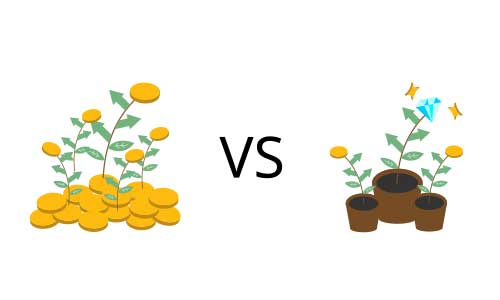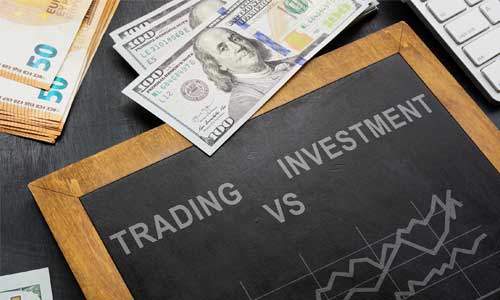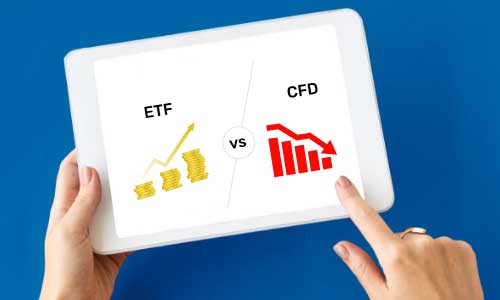ETFs Investment for Expats in the UAE
For expatriates living in the UAE, finding accessible, cost-effective, and diversified investment options can be challenging. However, one popular choice gaining traction among UAE residents is Exchange-Traded Funds (ETFs). This instrument offers an easy and cost-effective way to grow your money ...read more
Let’s walk through everything you need to know about ETF investment for expats, including how they work, the types available, key benefits, risks, and how to get started.
Disclaimer: The information on this page is for reference purposes only and does not constitute investment advice.
Best Investment Plans in UAE
Some of the best Investment quotes in UAE & Dubai are:
What is an ETF?
An Exchange-Traded Fund (ETF) is a type of investment fund that trades on a stock exchange like a typical stock. It is composed of a basket of securities, including stocks, bonds, and commodities.
Pinpointing the Concept:
- Problem: Traditional investments often require high capital and deep market understanding
- Solution: ETFs allow you to invest in a range of assets with just one purchase, offering instant diversification and lower entry barriers
Key Characteristics of ETFs:
- Track an index (like the S&P 500, FTSE 100, Nifty 50, and more.
- Trade throughout the day in trading hours (unlike mutual funds)
- Offer low management fees and high transparency
- Can be bought or sold easily on online trading platforms
Why are ETF Investment for Expats Popular?
Many expats in the UAE seek low-maintenance investments that offer international exposure, low fees, and ease of trading. This Exchange-Traded Funds UAE expat guide highlights the reasons ETFs check all the right boxes.
Benefits of ETFs for UAE Expatriates
Get exposure to hundreds of companies across sectors or regions with a single ETF, reducing the risk of relying on individual stocks.
These funds provide the advantage of lower management fees than mutual funds and fewer brokerage commissions if traded smartly.
Buy and sell ETFs anytime during market hours — no lock-in period like fixed deposits or some mutual funds.
You can start with a small amount and invest easily. Most ETFs disclose their holdings daily, making it easy to track what you own.
Place limit or stop-loss orders, just like with stocks, something mutual funds don't allow.
Use leveraged ETFs or trade ETF CFDs to amplify gains or take advantage of falling markets, although this involves higher risk.
Best ETFs in UAE for Expatriates
Here are some of the popular ETF investment for Expats in the UAE and other global ETFs based on expense ratio, low fees, and stable returns —
|
ETF Name |
Tracks |
Expense Ratio |
|---|---|---|
|
iShares MSCI UAE ETF |
MSCI All UAE Capped Index |
0.60% |
|
SPDR S&P 500 ETF |
S&P 500 Index (USA) |
0.09% |
|
Invesco QQQ ETF |
Nasdaq-100 |
0.20% |
|
Vanguard FTSE Developed Markets ETF |
FTSE Developed ex US All Cap Net Tax |
0.03% |
|
Schwab US Dividend Equity ETF |
Dow Jones U.S. Dividend |
0.06% |
How to Invest in ETFs as an Expat in UAE?
Getting started with ETFs is relatively simple. Here’s how to do it step-by-step —
1. Open a Brokerage Account
Sign up on platforms like HSBC WorldTrader, Saxo Bank, Interactive Brokers, and so on.
2. Choose Your ETF(s)
Select funds that match your goals, whether it’s growth, income, or global diversification. Decide the type — US market, global indices, sector-specific, etc.
3. Fund Your Account
Deposit AED or USD based on platform requirements. Some brokers accept AED and convert it automatically.
4. Place Your Order
Buy ETFs during market hours using market or limit orders — just like trading stocks.
5. Monitor and Rebalance
Review your portfolio regularly and adjust based on performance or changing goals.
Types of ETFs You Can Invest In
Depending on your financial goals, you can choose from different types of ETFs —
- Index ETFs: Track a specific index like the S&P 500
- Bond ETFs (Fixed Income): Invest in corporate or government bonds
- Sector ETFs: Focused on specific industries like tech, healthcare, or energy
- Commodity ETFs: Invest in gold, oil, or agricultural products
- Inverse or Leveraged ETFs: Suitable for experienced traders looking to profit from market downturns or amplified return
- Foreign Market ETFs: Track non-UAE or non-home country indices
- Actively Managed ETFs: A fund manager actively makes investment decisions
ETFs vs Mutual Funds vs Stocks — What’s Better?
While the choice between the two depends on your investing experience, goals, and other aspects, here are some points to help you make a decision —
| Feature | ETFs | Mutual Funds | Stocks |
|---|---|---|---|
| Diversification | High | High | Low |
| Trading | Throughout the trading hours | End of day only | Throughout the trading hours |
| Costs | Low | Moderate to high | Varies |
| Management Style | Passive or active | Mostly active | None |
| Risk | Medium | Medium | High |
💡ETFs provide a sweet spot for expats who want diversification like mutual funds but with the trading flexibility and lower costs of stocks.
Risks to Consider Before Investing in ETFs
While ETFs are a good investment choice, they are linked to the market. This, in turn, brings certain risks —
- Market Volatility: Like all investments, ETF values can rise or fall
- Currency Risk: Investing in USD-denominated funds while earning in AED can lead to forex risks
- Liquidity Issues: Niche ETFs may have fewer buyers/sellers
- Tracking Error: These funds might not perfectly replicate the index they're designed to track
- Tax Considerations: Some funds may incur dividend withholding tax, depending on the jurisdiction
Final Thoughts
ETF investment for expats in the UAE is a smart, accessible way to build long-term wealth. With low costs, global reach, and ease of trading, they offer an ideal blend of flexibility and diversification. Just remember: Do your research, choose a reputable platform, and align your choices with your financial goals!
Whether you're a seasoned investor or just starting out, this Exchange-Traded Funds UAE expat guide can help you build a portfolio that’s smart, balanced, and ready for the future.
FAQs on ETFs Investment for Expats in UAE
Should you invest in ETFs?
Yes, if you want a low-cost and easy way to invest in the stock market. ETFs offer good diversification and are less risky than picking individual stocks.
How is an ETF different from an index fund?
Both track market indexes. However, while ETFs trade like stocks during the day and usually have lower fees, index mutual funds are bought or sold only at day-end prices.
Do ETFs provide diversification?
Yes, most ETFs hold many assets, which spreads out your risk. However, as some funds may focus on a few stocks or sectors, it’s important to check their holdings before investing.
Can ETFs be used for short-term or long-term investment strategies?
Yes, ETFs work well for both short and long-term goals. You can use them for quick market moves or to build a solid, long-term investment portfolio.
How is the ETF’s price calculated?
An ETF’s price changes all day based on supply and demand. This is unlike mutual funds, which are priced only once a day after markets close.
Which factors can affect ETFs?
ETFs can be influenced by aspects like market trends, interest rates, economic news, changes in the holdings of the underlying index, and global events.
Is it legal for expats in the UAE to invest in ETFs?
Yes, expats can invest through licensed brokerages that provide access to international markets.
More From Investment
- Recent Articles
- Popular Articles





















